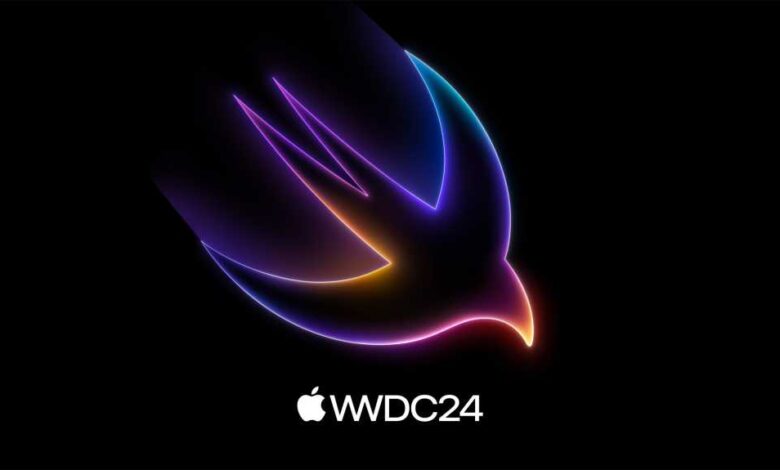What we’re expecting from iOS 18, Siri, and genAI – Computerworld

While the constant clamor masks it, there is life beyond generative AI (genAI) for Apple at next week’s WWDC 2024 — where its operating systems will ne getting a make-over. Here’s what to expect from the company’s most widely used platform, iOS 18.
I’ve focused here on improvements designed to help users get things done. It’s also important to bear in mind that not every rumored feature appears; some show up later, and as of now there’s speculation some AI features will require an iPhone 15 series (or newer) device.
Developers first
Naturally for a developer-focused show, Apple will want to show what it has done to make life easier for them. The star could be genAI support wrapped up within Xcode to help developers build code swiftly and accurately. (Think GitHub Copilot for the Apple ecosystem, only with better privacy and security protection.) These tools will be of great use, which is potentially why one of the WWDC 2024 taglines is “Swiftly Developing.”
What’s coming in Siri — a summary
After months of leaks, we can surmise the next iPhone OS will offer easier navigation, improved interfaces, additional security and privacy features, as well as a more contextually capable Siri that will be able to do more for you than before (called internally, “Grey matter”).
- Catch Up
The feature lets Siri provide a summarized overview of all a user’s recent notifications. I imagine this will be user-defined, so it means you’ll be able to review incoming messages from people and apps you want to hear from more than summarizing everything.
2. Smarten up
Siri also gains the capacity to automatically identify when a response is required. As you use your device Siri will identify important people, companies, events, locations, dates and other data to hone the options it provides. I think that means Siri should become capable of identifying whether you should attend a meeting or speak to a person, even if you have not made a note of it. The Journal app might be part of this, creating smart reminders and alerts about important notifications, emails and other items you might have missed.
3. Summarize
Apple has developed its own Ajax large language model (LLM) AI that can do useful things like summarize text, provide a summary of website content, or provide transcription services (such as by transcribing audio recordings).
4. Search
Searching the web using Spotlight is expected to improve as a consequence of Apple’s move to license ChatGPT tech from OpenAI.
5. Chatter
Siri also turns into a better and more responsive chatbot if you want to spend time chatting with your iPhone.
6. More control
Bloomberg tells us Apple is also working to give Siri the power to send and delete emails, open documents, move items between folders and other complex tasks — but warns these may not appear until 2025.
Messages improves
While I think enterprise users will be most pleased that Apple is expected to introduce RCS support in Messages with iOS 18, other improvements include new in-message Tapback icons to give users a wider selection of potential reactions, and the capacity to animate individual words. You’ll also be able to share higher quality videos and images with Android-using colleagues than beforeS.
Making Mail more useful
Mail needs far more attention than it gets. It really should integrate more effectively and in a more GUI-led way with applications, documents, and tools. I want Mail to become the ultimate PIM for any user, as capable for enterprise use as for anyone else. Apple took strides toward this last year with the introduction of email reminders, scheduled sending and an “unsend” function. This year, it plans additional functionality, including potential email responses you can automatically use. Calendar will also integrate with the Reminders app, so you can create reminders from within Calendar.
Settings – simplified
If you get lost while attempting to manage critical Settings on your iPhone, you’re not alone. Identifying the relevant setting isn’t always so straightforward, and the nesting of these doesn’t necessarily conform to your personal subjective opinion of where they should be. Why is Apple’s tool to collect your “significant locations” data hidden right at the bottom of the last page in Privacy & Security>Location Services>System Services, for example?
The good news (hopefully) is that Apple intends on overhauling Settings in favor of a cleaner, easier to search and explore interface. Settings on the Mac (and iPad, presumably) will get the same treatment.
Accessibility — the keys to new futures
Apple seems to be taking a really close look at how AI can augment existing accessibility tools across its systems. That’s what’s so important about the eye-tracking tools it says will appear on iPhones and iPads later this year. These will let you navigate what’s on screen and activate on-screen elements with your glance. In combination with Siri, this could make for a powerful user interface advance that’s just as useful on a Mac or visionOS device.
App-specific improvements
It will be possible to record and transcribe audio directly into the Notes app. This feature will also enable AI-created summaries. Photos gains powerful new image editing workflows and LLM-boosted commands and Control Center gets better controls for music and smart home devices.
Smarter everything
Apple devices work well together but don’t always work as well as you need. Why can’t you use your Apple Watch to easily get other devices to play music or otherwise handle content? This could change with iOS 18, which is now expected to be better able to handle tasks across devices.
The other stuff
You’ll be able to create a more harmonious Home screen with the capacity to change app icon colors. You’ll also be able to arrange icons as you wish on that screen, rather than being confined to the traditional grid layout.
One more thing – switch better
You can also expect improved tools to help Android users migrate to iPhone and iPhone users move to the other mobile platform. Apple has already committed to introducing such tools as part of its efforts to comply with the EU’s DMA. This extends to Live Photos support, which will be converted to Motion Photos when migrated to Android.
The new features are expected to appear first as a developer beta at or around WWDC and ship with the final iOS 18 release this fall.
Please follow me on Mastodon, or join me in the AppleHolic’s bar & grill and Apple Discussions groups on MeWe.



